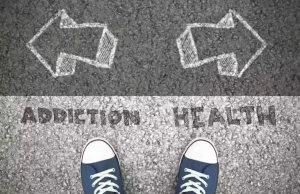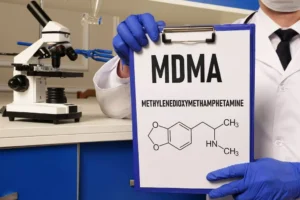Sober living 09/03/2023
Cocaine Relapse: Triggers, Prevention, & Treatment

• Avoid situations where people are likely to use drugs or alcohol. • Build a support network of friends and family to call on when struggling and who are invested in recovery. Naomi Carr is a qualified mental health nurse with several years of experience working with children and adults in the UK.
Patient Care Network
For example, between 30 and 50 percent of patients with Type 1 diabetes relapse, and between 50 and 70 percent of people with hypertension relapse, according to the National Institute on Drug Abuse. Getting appropriate treatment for co-occurring mental health and medical conditions can also help reduce your risk of relapse. Participating relapse prevention in a recovery program and building a support network is essential to preventing relapse. In addition to seeking professional treatment, you might consider joining a 12-step program or other mutual support groups. In order to understand how to prevent relapse, it is essential to first understand the relapse process itself.

How common are relapses?
Many triggers can come from environmental, mental, and emotional sources. Knowing and understanding them can help you avoid relapses during recovery. Relapse occurs when you begin using a substance again after a period of sobriety.
How to Prevent Relapse
- Isolating oneself from these support resources can put one at a greater risk for relapse.
- Alcohol, that oh-so-common social lubricant, boasts some of the highest relapse rates.
- For each goal you achieve, give yourself a reward as motivation to keep moving forward.
- Sometimes people will cycle through the stages several times before quitting.
Cognitive behavioral skills refer to your ability to recognize thought patterns influencing your emotions and determining your behavior. Coping responses are behavioral responses to stressful situations. People might go through one or more relapses before they succeed. Relapse occurs when a person returns to substance use after abstaining for a certain period.


While the road to recovery may be fraught with challenges, there are numerous evidence-based strategies that can help reduce relapse rates and support long-term sobriety. Stress, that ubiquitous modern-day villain, is a major relapse trigger. Mental health https://ecosoberhouse.com/ disorders like depression, anxiety, or PTSD often go hand-in-hand with addiction, creating a vicious cycle that can be hard to break. It’s no wonder that many in recovery find themselves teetering on the edge of relapse when life throws them a curveball.
- Being aware of the stages of relapse and having a plan to deal with them can help prevent you from using again.
- It’s simply part of their process – an obstacle that must be overcome.
- In fact, learning how to face your emotions without escaping into addiction is invaluable.
It may be a tough journey, filled with ups and downs, but with the right support, strategies, and perseverance, individuals can overcome addiction and build fulfilling lives in recovery. The shadow of relapse may loom, but it need not define the story of recovery. Keep reading to learn more about symptoms, triggers, and coping mechanisms for depression relapse.
These numbers might seem daunting, but they also highlight the persistent nature of addiction and the need for ongoing support and treatment. So, try journaling, meditating, or even praying when you are feeling negative. Find a healthy way to release your negativity and boost your mood.
Mental Relapse
But if you do relapse, you should accept that it is a normal part of quitting and resolve to learn from the experience. One goal of treatment is to help people learn to recognize the signs of relapse during the early stages to increase the chances of a successful recovery. Whether or not you relapse is closely tied to your sense of self-efficacy. Sometimes, you unknowingly begin taking steps toward a relapse weeks or months before actually drinking or using drugs. Certain thoughts, feelings, and events may trigger cravings and urges for drugs and alcohol, and, if not properly dealt with, may increase your chances of relapsing. Also critical is building a support network that understands the importance of responsiveness.
Addiction Cravings: Navigating the Intense Urges in Recovery
This may vary from person to person and be influenced by things such as extent and length of use. Talking openly about a lapse or relapse with a care team can help you develop and strengthen your relapse prevention plan and identify how to get back on track with your recovery goals. Read more to learn about types and stages of relapse in addiction, as well as relapse prevention strategies. Different types of treatment programs offer various levels of care to meet you where you are in your recovery process. Therapy is extremely helpful; CBT (cognitive behavioral therapy) is very specifically designed to uncover and challenge the kinds of negative feelings and beliefs that can undermine recovery.

